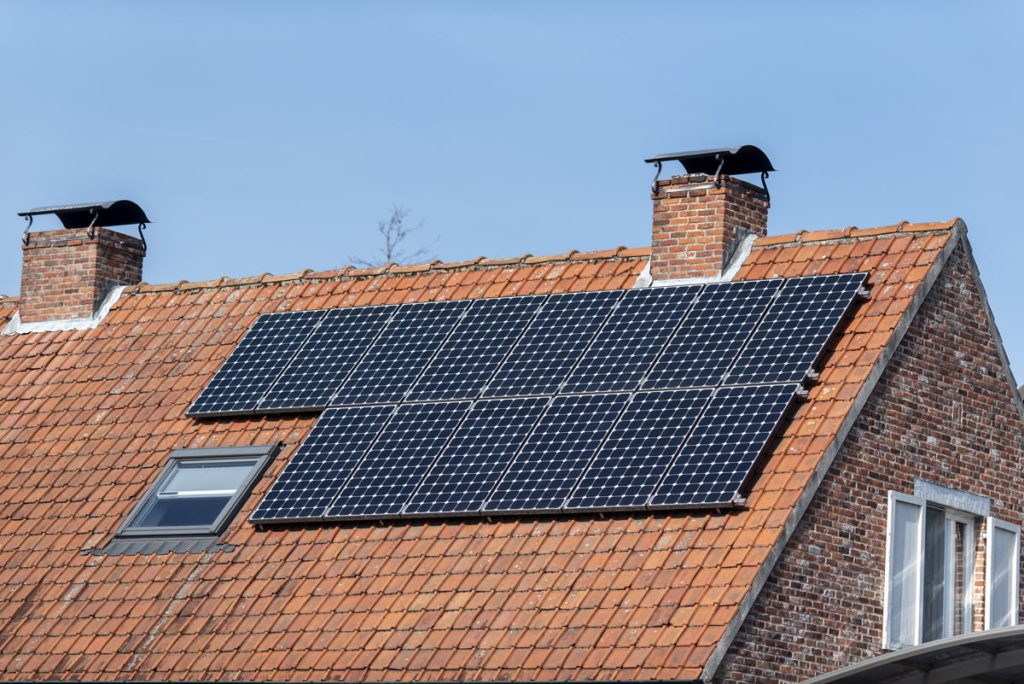Thousands of solar panels stopped producing electricity during very sunny days this year as a result of more energy being produced than was being used.
During the summer months, grid operator Fluvius received around 2,400 complaints relating to solar panels cutting out, a 65% increase since last year.
"There is a technical reason for this: panels have a safety mechanism that kicks in when solar panels are producing a lot of power and people are not using the power themselves, whether this is because they are not at home or they aren't using as much power," Fluvius spokesperson Björn Verdoodt told The Brussels Times.
This usually occurs in places where many solar panels are located close to each other, as well as in rural areas. When this happens, the excess energy goes onto the electricity grid, Verdoodt explained.
In rural areas, in particular, a queue can be formed in the grid around power points, congestion which is technically seen as overvoltage. To protect both solar panels and the electricity grid from damage, by law Fluvius must add a mechanism that shuts down panels.
Despite their solar panels cutting out, owners do not risk running out of electricity, they just stop producing power.
Local and large-scale solutions
To tackle the problem, Verdoodt explained that measures can be taken on a local level, either by Fluvius or the solar panel owners.
"In the short term, customers can try to use as much of the power they generate on sunny days," he said, adding that is more realistic for those who are teleworking more often as a result of the pandemic, as they can "put on their dishwashers or washing machines when it is sunny."
When receiving a complaint, Fluvius visits a customer to understand the layout of the electricity grid in the neighbourhood.
"We can then take action to adjust the electricity grid where the problem occurs more often, to ensure it can cope with the additional power in the system, so the capacity is larger and deactivation of the panels can be avoided as a result of the protection mechanism," Verdoodt explained.
Yet these individual solutions on the local level are often insufficient or unsustainable means of addressing larger structural issues with the electricity grid. To this end, Fluvius also carries out technical works – dubbed investment works by the company. These involve either adding new cables with greater capacity or placing extra electricity junctions on the grid that serve as traffic control systems that allow power to be redistributed more easily.
"In that case, this is cannot be done in a few weeks. Depending on the conditions, it is a solution that will take from few months to a year and a half to complete," Verdoodt explained.
Relatively small problem
In total, around 600,000 solar panel installations have been constructed in Flanders, of which around 150,000 were added in 2020. This means that the problem affects just 0.5% of all solar panel owners.
"We take every complaint seriously, but it is not a huge problem affecting a large number of panels. However, the number of complaints regarding this issue is rising, which is why we are intervening," Verdoodt said.
Fluvius launched an action plan this summer which includes extra investments, specifically at 30 power points in Limburg where locations with most issues regarding energy grid capacity will be optimised.
"This extra action is taken to control and, where possible, solve the problem; it seems to me this is just as important as the problem occurring on the grid," Verdoodt concluded.
According to Flemish ombudsperson Bart Weekers who deals with persistent complaints regarding Flemish public services, those who are affected should be compensated – a decision that doesn't involve Fluvius but would have to be made by Flemish energy regulator Vreg or the Flemish Government.
Flemish energy minister Zuhal Demir has already called for a long-term solution and said that compensating solar panel owners is merely "fighting the symptoms." Opposition party Groen has since argued that Demir should take the lead in solving the problem.
"You can not explain to people that sustainable energy is the future, while solar panels fall out when the sun shines," Flemish MP Staf Aerts told Belga news agency.

